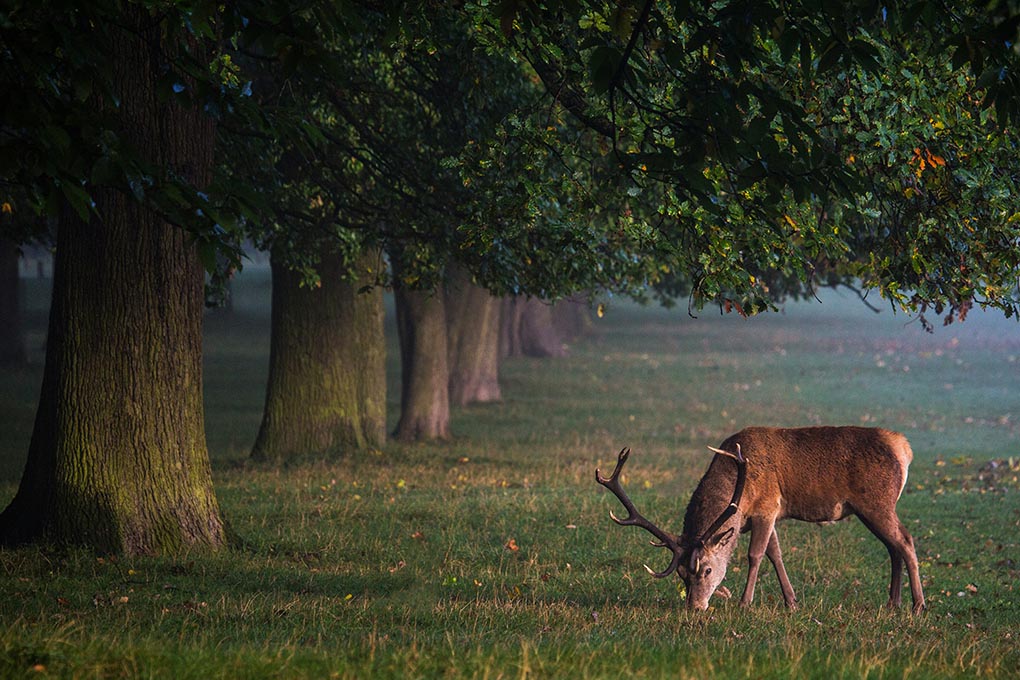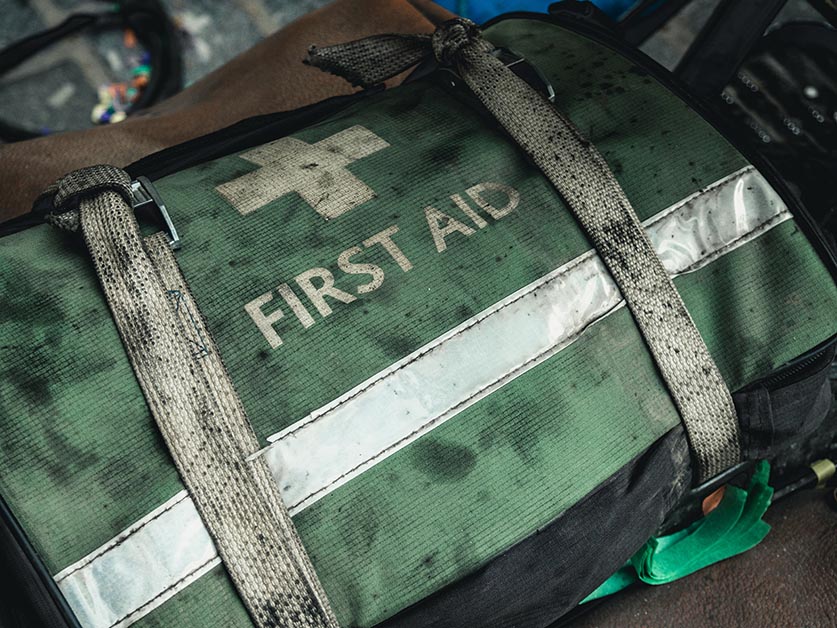by Steve Jean
Share
by Steve Jean
Share
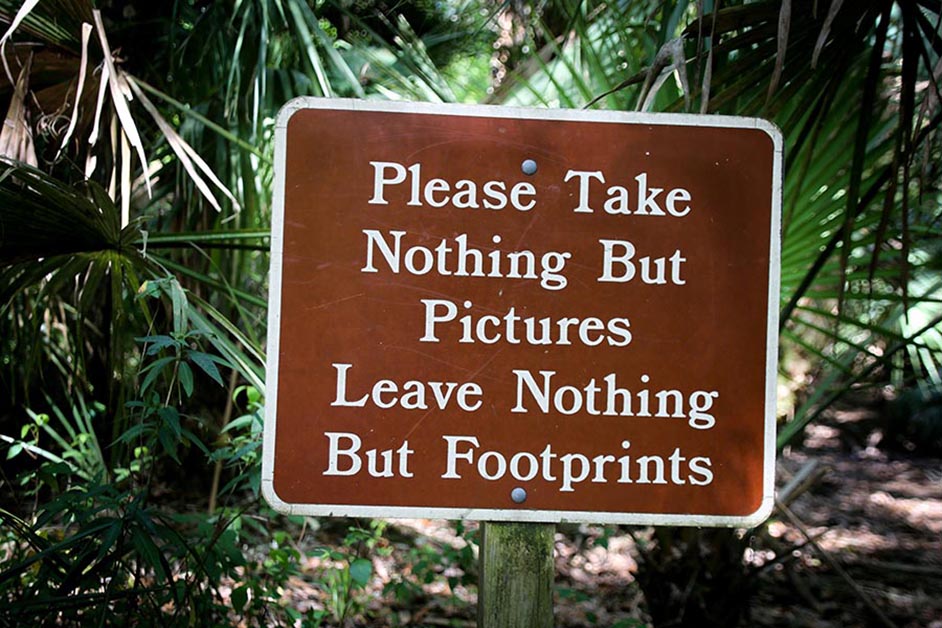
As lovers of the outdoors, we have the fantastic opportunity to witness the stunning beauty of nature. However, we are responsible for ensuring that we do not harm the environment while enjoying it. Leave No Trace camping principles guide outdoor enthusiasts to appreciate nature while preserving its natural state.
This post will discuss the significance of Leave No Trace camping and the seven principles that uphold this sustainable approach to outdoor adventures.
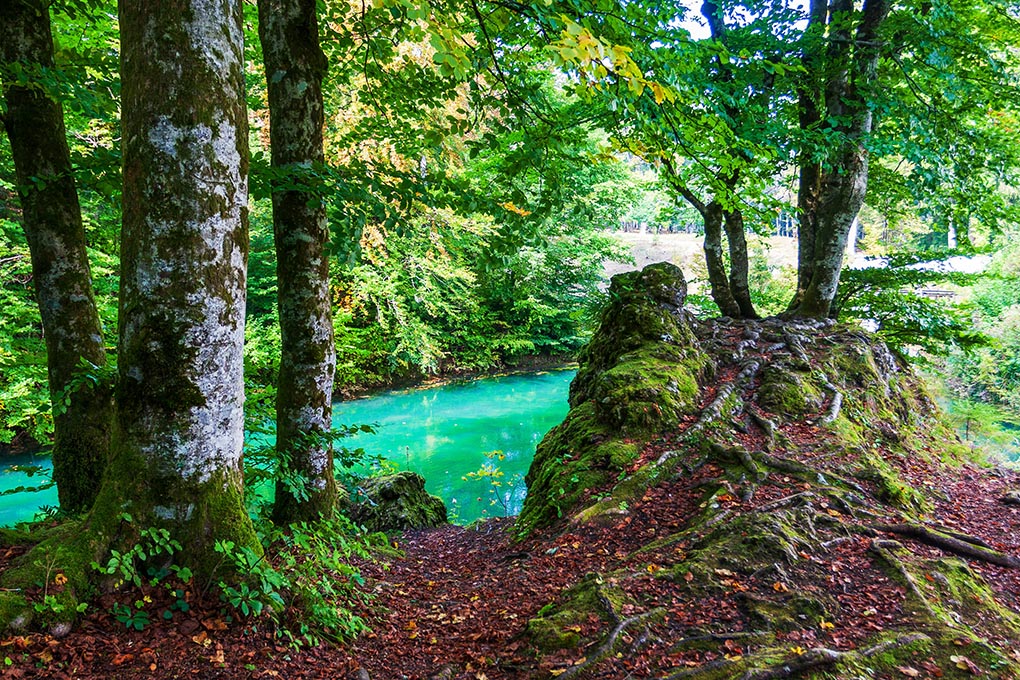
Plan Ahead and Prepare
If you plan to go camping, you should thoroughly research the area you intend to visit. Knowing the regulations and guidelines of the region is essential to ensure that you comply with the rules and avoid any legal issues. Additionally, it’s essential to be familiar with the local flora and fauna to avoid any potential dangers and respect the natural habitat.
Researching the weather conditions of the area is also essential before starting your camping adventure. Knowing what to expect can help you pack the right gear and clothing to make your trip more comfortable. You should also be aware of any potential challenges you may face, such as steep terrain, high altitudes, or water crossings.
Proper preparation can help you minimize the impact of your camping experience on the environment. You should make sure to bring the necessary gear and supplies and avoid any unnecessary items that may harm the environment. You should also be mindful of the waste you create and dispose of it properly to preserve the natural beauty of the area.
In summary, taking the time to do your research and prepare adequately can help you have a successful and enjoyable camping trip while minimizing the impact on the environment.
Travel and Camp on Durable Surfaces
When you embark on an outdoor adventure, it’s important to be mindful of your surroundings and the impact you may have on the environment. One of the most critical aspects of responsible outdoor exploration is to adhere to established trails and campsites. By doing so, you can help prevent any harm to the fragile ecosystems of the area.
Stepping off the designated paths can lead to soil erosion, which can cause significant damage to the environment. The destruction of plant life can also occur, which can have a ripple effect on the entire ecosystem. To minimize your impact on the environment, it’s recommended to choose durable surfaces like rocks, gravel, or established campsites. These surfaces can withstand the wear and tear of human activity, and they are less likely to cause damage to the environment.
By being mindful of the impact of your actions, you can help preserve the natural beauty of the outdoors for future generations. So, the next time you venture out into nature, remember to stick to the established trails and campsites to minimize your impact on the environment.
Dispose of Waste Properly
When exploring nature, it is critical to carry a small, portable trash bag with you. This way, you can properly dispose of any litter you may generate, including food scraps, packaging, and other waste. It is essential to pack everything out and dispose of it correctly in dedicated trash cans or facilities for waste disposal.
When nature calls, proper disposal of human waste is necessary to avoid polluting the environment. It is recommended to dispose of human waste at least 200 feet away from any water source. To do this, use a trowel to dig a small hole that is at least 6-8 inches deep and 4-6 inches wide. Once you have finished, bury the waste, and cover it with dirt to decompose naturally.
Remember that any waste left behind not only harms the environment but also detracts from the enjoyment of nature for future visitors. So, it is crucial to pack out all the litter you generate and dispose of it properly. Let’s all do our part to keep nature clean and beautiful for everyone to enjoy!
Leave What You Find
When exploring the wilderness, it’s important to remember to preserve its natural beauty and keep it unspoiled for others to enjoy. One way to do this is by refraining from disturbing any wildlife that you may encounter along the way. This means avoiding any actions that could harm or disrupt an animal’s natural habitat or behavior, such as feeding them or approaching them too closely.
Additionally, it’s important to avoid removing any natural features or picking flowers along the way. These features are an integral part of the ecosystem and play an important role in maintaining the balance of the environment. Taking them away can have negative consequences for the plants and animals that rely on them.
When you leave the wilderness, make sure to leave everything as you found it. Take only photographs and memories with you, and avoid leaving behind any trash or other items that could harm the environment. By following these guidelines, you can help ensure that the wilderness remains a pristine and beautiful place for generations to come.
Minimize Campfire Impact
Campfires have been a part of camping culture for a long time. However, it is important to be aware of the potential harm they can cause to the environment. To minimize the risk of wildfires and leave no lasting impact, it is advisable to use a camp stove for cooking. Camp stoves can be purchased or rented and they are a safer and more eco-friendly alternative to campfires. They are easy to use and can be fueled by propane or butane. You can also cook anything on a camp stove that you would cook on a campfire, such as burgers, hot dogs, or veggies.
If fires are allowed, it is important to follow some guidelines to ensure they are safe and not harmful to the environment. Firstly, make sure to keep them small and contained within an established fire ring. This will prevent the fire from spreading and causing damage to the surrounding area. It is also important to completely extinguish the fire before leaving the campsite. This can be done by pouring water over the fire and stirring the ashes with a stick. Make sure the fire is completely out and the ashes are cool to the touch before leaving the campsite.
By following these guidelines, you can enjoy a safe and eco-friendly camping experience.
Respect Wildlife
When it comes to wildlife, it is crucial to maintain a safe distance and view them from a distance. This is important for two reasons. Firstly, it helps to prevent any potential harm to the wildlife in question. Secondly, it ensures your own safety, as getting too close to wild animals can be dangerous.
It is also important to remember not to feed wildlife that you come across. Doing so can disrupt their natural behaviors and diet, which can cause long-term harm. For example, if an animal becomes accustomed to human food sources, it may start to rely on them rather than its natural food sources. This can lead to malnutrition or a decline in health.
To prevent wildlife from becoming too accustomed to human food sources, it is recommended to store food securely. This means keeping food in sealed containers or storing it in a safe place, out of reach of animals. By doing so, you can help protect both the animals and yourself.
Be Considerate of Other Visitors
When embarking on a camping trip, it is important to remember that you will be sharing space with other campers. Therefore, it is vital to be considerate of others to ensure that everyone has a pleasant experience. One of the ways to achieve this is by keeping noise levels to a minimum. This means avoiding loud conversations, music, or other loud activities that may disturb your fellow campers. By doing so, you will be helping to create a peaceful environment where everyone can relax and enjoy their surroundings.
Another important aspect of being considerate is respecting the personal space of other campers. This means being mindful of their privacy and avoiding any activities that might encroach on their camping area. For example, avoid walking through other people’s campsites, and ensure that you keep your belongings within your designated area.
When hiking on trails, safety should always be a top priority. However, it is also important to be courteous to other hikers. If you are passing another hiker, yield to them and let them know that you are there. Additionally, avoid actions that may negatively impact the overall wilderness experience for others, such as littering or damaging the environment.
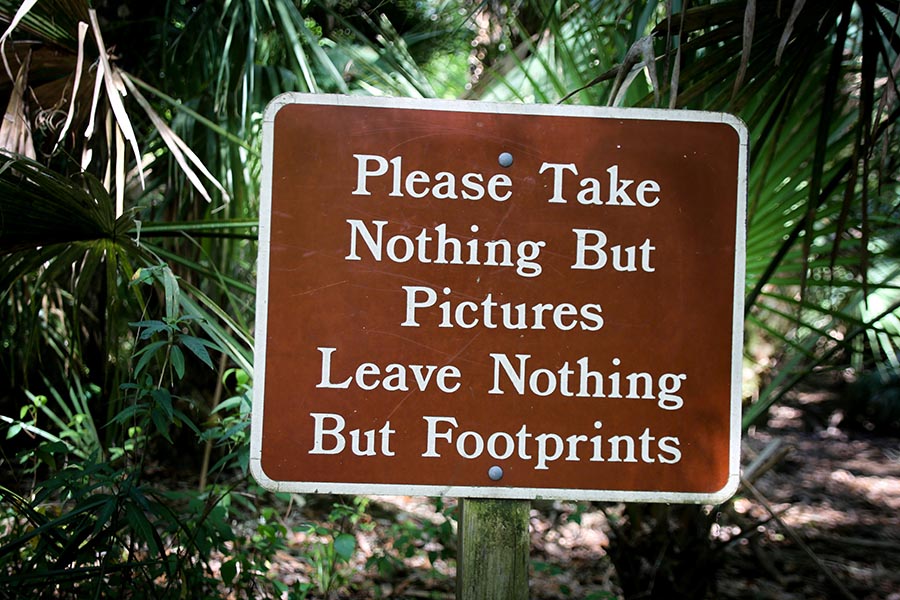
“Leave No Trace” camping is more than just a set of guidelines; it’s a state of mind that promotes a deep admiration for nature and a commitment to conserving it for future generations. By following these principles, people who enjoy the outdoors can relish the beauty of the wilderness while also ensuring their impact is as small as possible.
Let’s all work towards being responsible caretakers of the environment and adopt the “Leave No Trace” way of life to achieve a sustainable and harmonious coexistence with the great outdoors. When exploring nature, it is critical to carry a small, portable trash bag with you.
This way, you can properly dispose of any litter you may generate, including food scraps, packaging, and other waste. It is essential to pack everything out and dispose of it correctly in dedicated trash cans or facilities for waste disposal.
Many people are drawn to the allure of the open road, the freedom to explore new destinations, and the comfort of home on wheels that RV travel offers. However, before hitting the road, one of the first decisions that needs to be made is whether to rent or buy an RV. Each option has its
Whether you’re embarking on a wilderness adventure, planning a family camping trip, or simply stocking your home medicine cabinet, having a well-equipped first aid kit is essential for handling life’s little emergencies. From minor scrapes and cuts to more serious injuries, being prepared can make all the difference in ensuring a swift and effective response.
Camping in the great outdoors offers a wonderful opportunity to unwind, connect with nature, and create lasting memories with loved ones. However, it’s important to prioritize safety to ensure a positive and enjoyable experience. From preventing accidents to handling emergencies, here are some essential tips to help you stay safe while camping outdoors. Choose a



